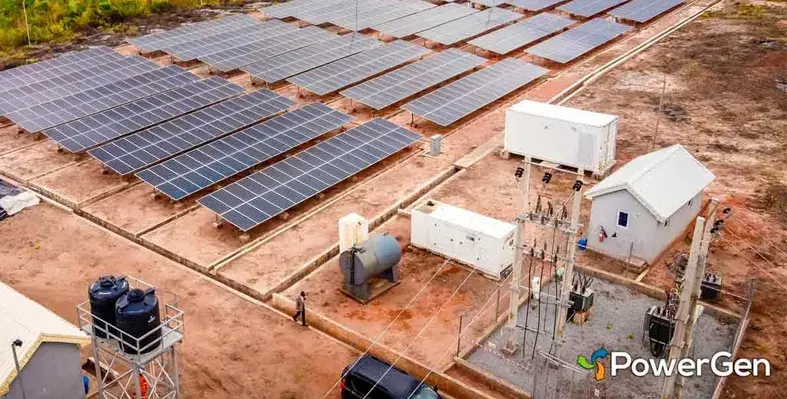PowerGen Renewable Energy (PowerGen) has joined forces with leading international investors to create a scalable, distributed renewable energy platform. The initiative aims to deploy 120MW of renewable power, including battery energy storage solutions, across Africa
The platform is a collaboration between PowerGen and prominent organisations such as the Private Infrastructure Development Group (PIDG), the Danish Investment Fund for Developing Countries (IFU), EDFI Management Company (via its EU-funded Electrification Financing Initiative, ElectriFi), and the African Development Bank’s Sustainable Energy Fund for Africa (SEFA). PIDG’s anchor commitment was made through its investment arm, InfraCo, supported by concessional capital from PIDG Technical Assistance.
Managed by the African Development Bank, SEFA is a multi-donor special fund providing catalytic finance to stimulate private-sector investments in renewable energy and energy efficiency.
Leveraging PowerGen’s 13+ years of experience in African projects, the funds will enable the deployment of a 120 MW portfolio, comprising renewable mini-/metro-grids and commercial and industrial (C&I) power solutions with integrated battery storage. Initially focused on Nigeria, Sierra Leone, and the Democratic Republic of the Congo (DRC), the platform is set to expand regionally by tapping into PowerGen’s extensive pipeline and fostering partnerships with local developers and EPCs. This platform approach is expected to accelerate efforts to connect the 570 million people in sub-Saharan Africa who currently lack electricity, as per IRENA data.
The first transaction closure in January 2025 will pave the way for additional equity and debt finance later this year. PowerGen, a Power Africa private sector partner, previously benefited from technical assistance and funding for ElectriFi and SEFA from the U.S. government-led Power Africa initiative.
Claire Jarratt, PIDG’s head of investment management for InfraCo, stated, “PIDG has worked with PowerGen for a number of years in Sierra Leone, and we are confident in their ability to develop, deliver and operate high-quality distributed energy infrastructure in challenging conditions. We are therefore delighted to anchor this new investment. We are pleased to be working with partners to support PowerGen to expand its offering across sub-Saharan Africa at a platform scale that has the potential to be truly transformational.”
Luke Foley, PIDG deputy head of technical assistance, added, “This investment epitomises the PIDG mandate. It builds on PIDG’s innovative use of its blended finance tools and reinforces its dedication to support the deployment of sustainable energy solutions, which are key to both combating climate change and fostering economic resilience in the region.”
Henrik Henriksen, IFU investment director, commented, “There is a tremendous need for enabling access to clean energy that can assist underserved households and businesses in Africa to become more resilient to climate change and to provide them with opportunities for better living conditions without further increasing greenhouse gas emissions. Therefore, we are very proud to be a part of a joint investment enabling PowerGen to develop sustainable off-grid power solutions in sub-Saharan Africa. This aligns with our increased focus on supporting Africa’s transition to be more climate resilient.”
Dr Daniel Schroth, director of renewable energy and Energy Efficiency at the African Development Bank, stated, “The African Development Bank’s contribution to PowerGen’s platform reflects our commitment to catalysing private investment in sustainable infrastructure and energy access in line with the objectives of Mission 300. This project will bring electricity to underserved areas in Nigeria, Sierra Leone, and the DRC, and generate significant economic activity and create numerous employment opportunities. It’s an excellent example of our strategy to drive development through targeted partnerships.”
With this funding secured, PowerGen is poised to serve the energy needs of over 68,000 households and reduce power costs for 7,000 businesses. The enhanced electricity access is expected to boost business productivity, generate indirect jobs, and stimulate economic growth.












